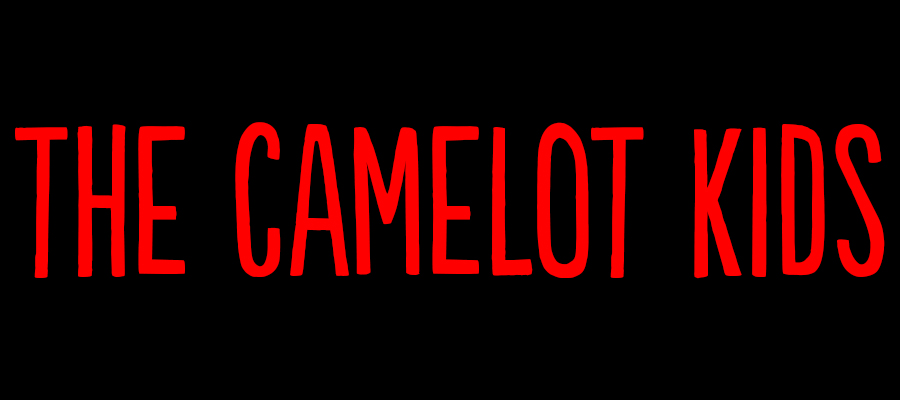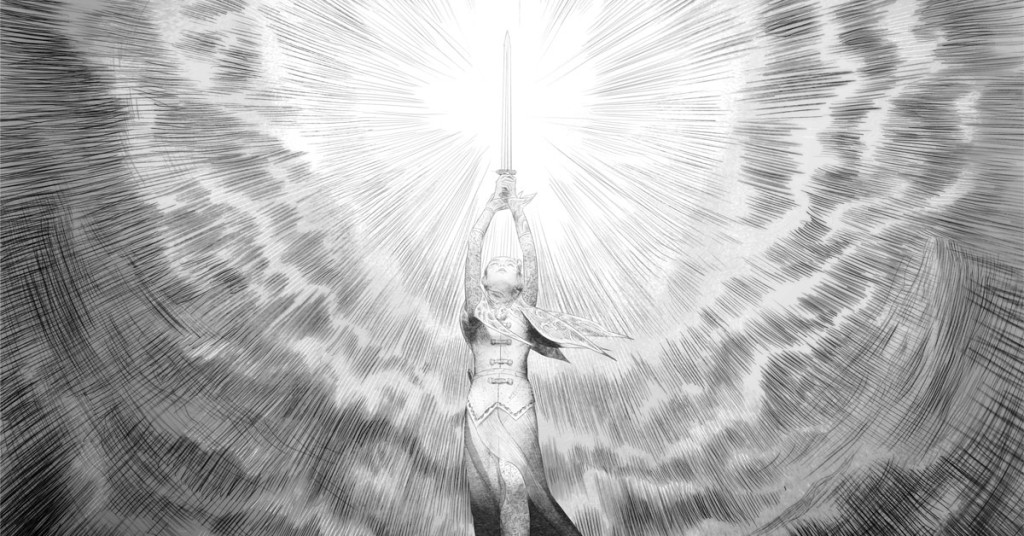Chivalry is the act of defending those who cannot defend themselves.
That’s a simplification, but I’m going with it (for now), and you can’t stop me.
The same way magic is the code that holds Harry Potter’s world together, chivalry is the code, the foundation and the social dynamic of Camelot.
Now that I’ve completed Book One, I understand that something in the core of the mythology was drawing my own sense of chivalry out of me. It was injecting these complex, flawed characters with a sense of doing the right thing, no matter the cost. Sure, the complex moments of bravery, stubbornness and kindness were emerging in a mystery/action/adventure yarn. But within the mask of story was a seed of humanity that I’d never considered deeply for my protagonists before.
An orphan helps an orphan.
A bullied student helps the new kid escape a gang.
Even those who live a life rife with heartache and hard knocks emerge chivalrous. No, especially those who live a life rife with heartache and hard knocks emerge chivalrous.
But why? How? Where does this instinct to protect those around us come from? What happens inside us when we drop our own interests and risk everything for other people?
The answer became clear as I wrote the book.
The dynamic of wanting to connect with people is the same dynamic that makes us risk everything to help them. In other words, our connection to each other, simply because we’re human, has costs as well as payoffs. For our humanity, we get friendship, love and support as a “payoff”. But does that mean that heartbreak, pain and rejection are the “cost”?
No. That was my revelation as I wrote The Camelot Kids.
The cost of this human experience isn’t heartache, pain and rejection. It’s chivalry.
Being loved, supported, hated, ignored creates an astonishing power to do the right thing for anyone — friend, foe, or stranger. That human connection is so complex that something in us is willing to give our lives for it in a split second.
For me, this revelation does something profound to my sense of modern life. Don’t we live in an insulated bubble? I’ve assumed that most of us reach a certain age of reason where we construct a world with as much love as possible, and avoid the most pain. It takes a while, but it seems to me to be a standard human thing to do. To the degree that we have control over our surroundings, don’t the vast majority of us expend a tremendous amount of energy on building comfort and avoiding discomfort?
While I still think the answer to these questions is yes, it’s clear that we have a Trojan horse of bravery, duty, kindness and chivalry in us. It’s rolled into our gut at around the same time we look at another human and realize we want to keep them close forever. And it’s solidified when we meet our first enemy.
I think it’s the most exquisite insight we could have today. I think mythology that reinforces this inherent power in each of us is what we all need right now.
Taking this idea further; our disillusionment with Arthurian lore is indicative of our disconnect with our own chivalry.
Prove it!
Okay. When was the last time we felt connected to the second most famous myth of our time? We get chance after chance in the Merlin or Camelot TV shows, the recent King Arthur movie — but they don’t resonate outside a small group of fans. It’s not because the efforts suck, necessarily (though some do). It’s that they’re stale. They treat chivalry like it’s a noble thing only, and not the complex force it is.
Chivalry is Gandhi.
Chivalry is Martin Luther King, Jr.
Chivalry is Malala Yousafzai.
The heroes of Camelot don’t need to tell the same thousand year story again.
The heroes need to be among us. More importantly, they need to be chivalrous among us.
So for all my humility and fear in tackling the lauded lore, my goal with my new book, The Camelot Kids, is to give the world a peek into Camelot in our time. I want to make Camelot fun again. And I want to do it in a way that’s respectful of the tales’ whimsy, boldness and deep conviction that to do right for others is to do right for everyone, including yourself.
After all, the more in touch we are with our inner Camelot, our sense of chivalry, the better off the world will be.


